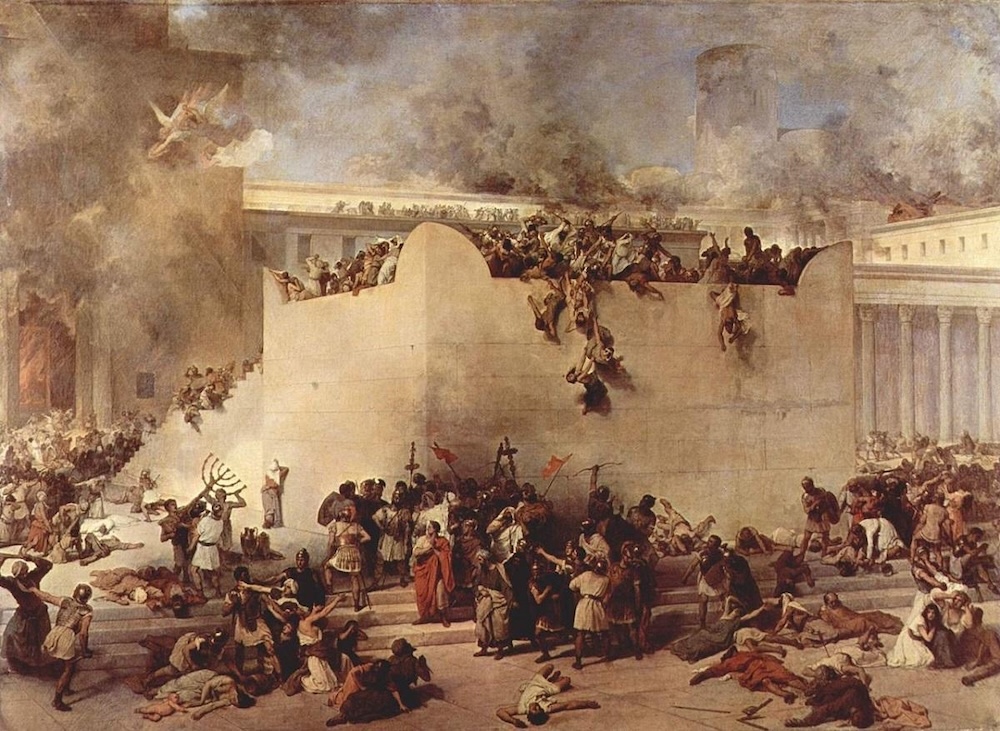
I strive for positivity, but sometimes I fall short. In the Old Testament, the primary message of the Book of Lamentations is to express the grief the Jewish people felt over the destruction of Jerusalem by the Babylonians in 586 BCE:
“How deserted lies the city,
once so full of people!
How like a widow is she,
who once was great among the nations!
She who was queen among the provinces
has now become a slave.”
I think I know how the poet of Lamentations (Jeremiah?) must have felt. I’d like to think I could process my lament for America and turn it into something hopeful and restorative. But National Guard troops on our cities’ streets, our diminished standing in the world, and the myriad woeful divisions at home make me wonder where this moment in our nation’s history leads. The exile of the Jewish people ultimately ended, and they returned to rebuild Jerusalem. Will we ever be able to rebuild America? You tell me.
Just as I strive for positivity, I struggle with resistance. I was a college student in the 1960s so I should know something about protest. How do we—how do I—resist the slow and painful death of our great experiment? I was never one to march in protest, but neither am I one to sit idly by and watch democracy die. So I muse. Does it do any good? You tell me.
Elizabeth Kübler-Ross’ “five stages of grief” reflect the most common human responses to change, shock, and loss. They are denial, anger, depression, bargaining, and acceptance. I get the first three, but not the last two. How does one bargain with the devil? How does one accept the unacceptable? You tell me.
Scholars believe Jeremiah’s lamentations were written to express grief, acknowledge sin and judgement, and (thankfully!) to offer hope to a people who had lost everything. Despite its roots in grief, Jeremiah’s song is a compassionate message, one promising a future restoration. Just as I am no protester, I am not a biblical scholar. But I do believe in the laws of karma and that good things happen to good people. That is the hope I carry through these lamentable days.
The Jewish people were captive in Babylon for seventy years. They returned to rebuild the temple in Jerusalem, only to see it destroyed again by the Romans in 70 CE. That was the beginning of the diaspora which loosed two more sad histories on the world, one that is currently being written in blood in Gaza. How will that tragic story end? How will ours? You tell me.
In keeping with my usual positivity, I’m searching for a happy ending to this Musing. Maybe there isn’t one. I’ll do my best to return to higher ground next week because an excess of lamentation isn’t good for the soul. In the meantime, can’t we all make an effort to be a little more kind, a little more empathetic, a little less nasty, a little less divided?
You tell me.
I’ll be right back.
Jamie Kirkpatrick is a writer and photographer who lives on both sides of the Chesapeake Bay. His editorials and reviews have appeared in the Washington Post, the Baltimore Sun, the Philadelphia Inquirer, the Pittsburgh Post-Gazette, the Washington College Alumni Magazine, and American Cowboy Magazine. His most recent novel, “The Tales of Bismuth; Dispatches from Palestine, 1945-1948” explores the origins of the Arab-Israeli conflict. It is available on Amazon and in local bookstores. His newest novel, “The People Game,” hits the market in February, 2026. His website is musingjamie.net.



Vic Pfeiffer says
Demonstrate on October 18th.
Liz Wright says
Very well said. Who will rebuild Gaza?
It is easy to feel the waves from the destruction,
but what can I do?